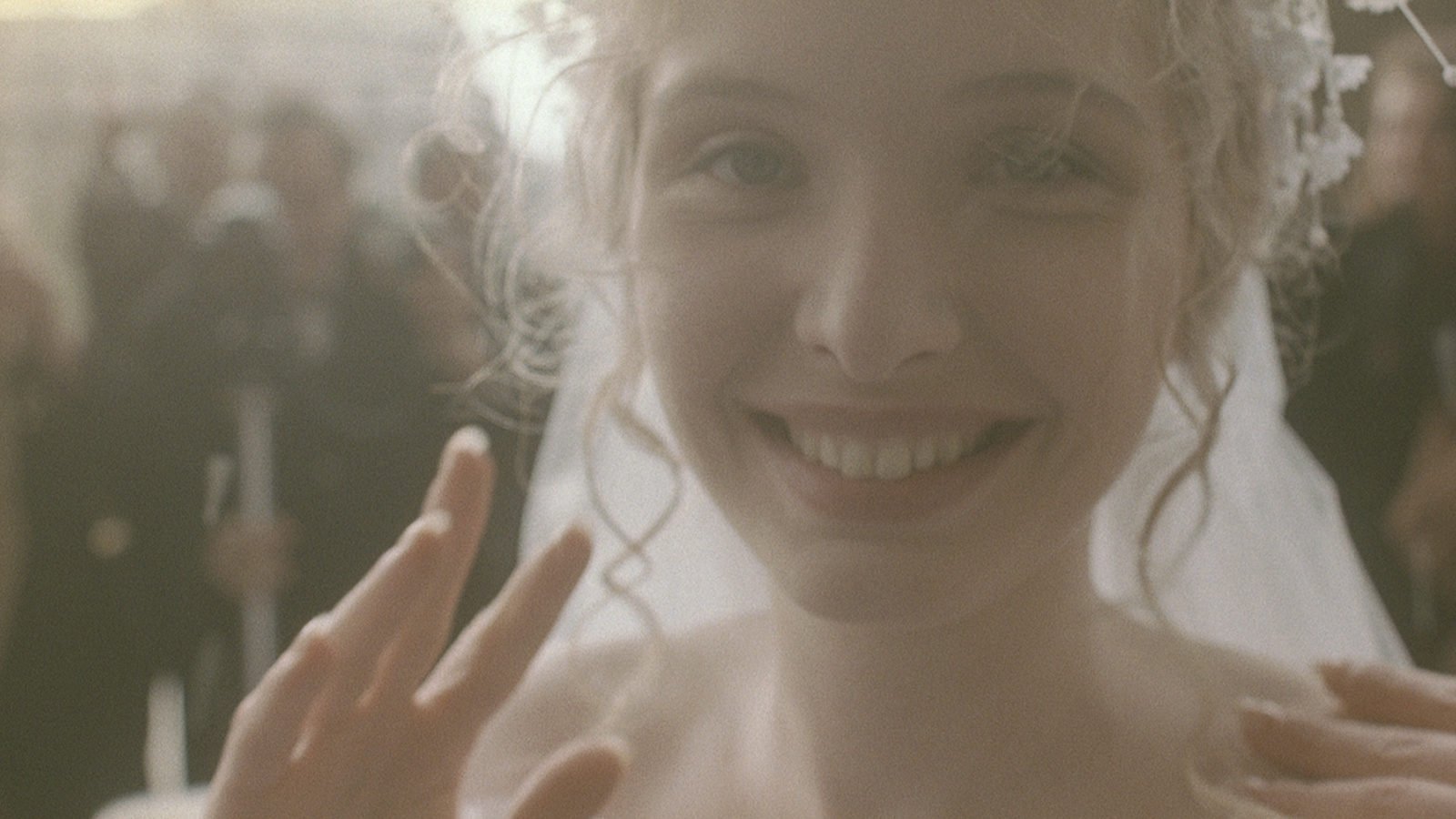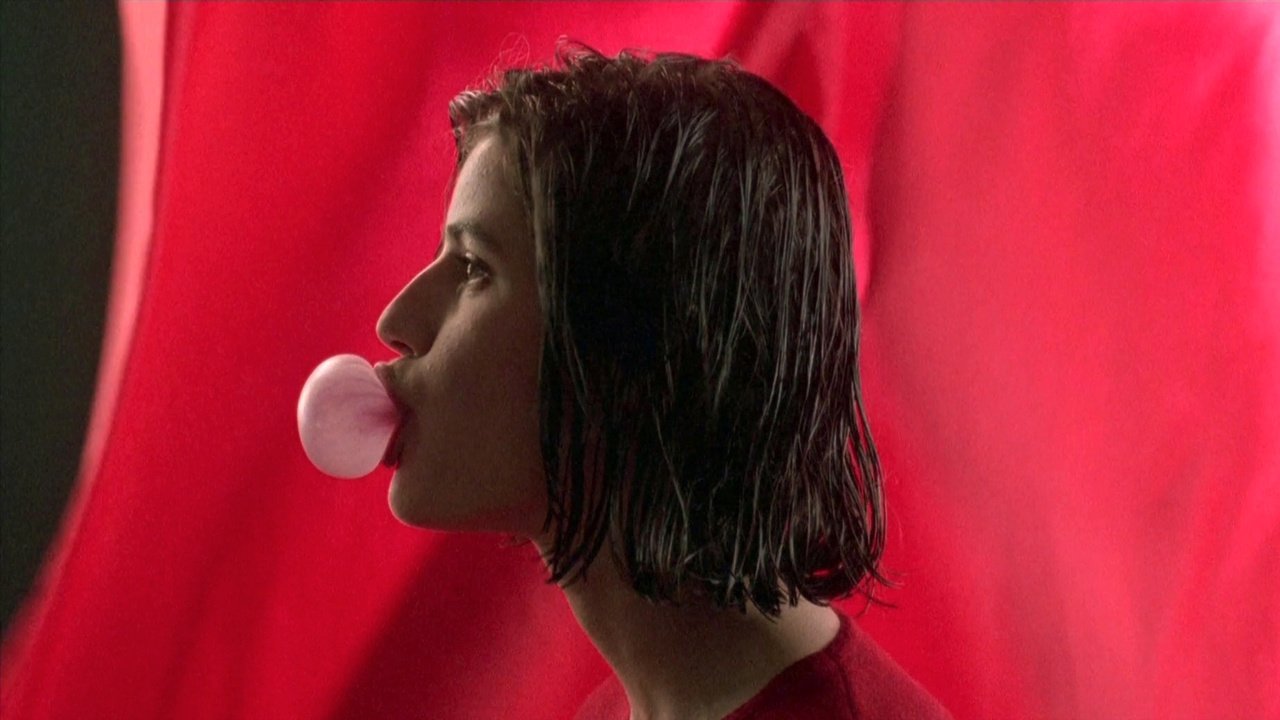Three Colors: Blue, White & Red (1993/94, dir. Krzysztof Kieślowski, France & Poland) by Kymm Zuckert
I saw the Trois Couleurs trilogy when they first came out, but then not again until lo these many years later. They have been 4k restored and re-released into the art houses, here in LA I saw them at American Cinematheque.
Actually, Secret Movie Club showed them last year, and I saw Bleu then, but wasn’t able to make it to the other two, so I’m glad to have had another opportunity to see them on the big screen.
Bleu begins with Julie (Juliette Binoche), being the only survivor of a tragic car wreck that kills her husband and five-year-old daughter. She is injured, but survives, in body, at least. In her soul, she closes down entirely, deciding to live her life with no connections, she doesn’t want to own anything, or make new memories. The only person she still sees is her mother, in a care home, whose dementia means that she rarely knows who Julie is anyway. She moves out of her house, sells all her belongings, and lives in an apartment in an area where she knows no one. Of course, life finds a way to intrude on her plans.
Bleu, Blanc, et Rouge are the colours of the French flag, and each film is themed on the colour, but also on one third of the motto of France, liberté, égalité, fraternité. So Bleu’s theme is liberty, freedom. At one point, we see her standing under the word when she is about to go into the court building, but of course, it is more than that. She is liberated from her grief, but she is also liberated from her previous life, happy though she was in it. It is a beautiful film about why you do when you suddenly find yourself in a different life than you thought you would be.
When I saw Bleu in 1992, I thought it was okay, but kind of chilly and a little dull. Seeing it again last year and now, I was like, what was I thinking? It’s about a woman holding her feelings in check, but it’s hardly cold. I think the issue was that I was just too young. I mean, I was hardly a child, but I think if you haven’t had enough life experience, or rather death experience, it’s a film whose deeper meaning could pass you by.
Blanc was my favourite when I saw it in ‘94, I think it is few people’s favourite, as it is very different than the other two, but I loved it then and now.
The film starts at the courthouse (we briefly see Julie, as in Bleu we briefly see the two main characters of Blanc), where Dominique (Julie Delpy) is divorcing her Polish husband, Karol (Zbigniew Zamachowski), leaving him with literally nothing, on the street, destitute, playing a comb for change. She is NOT a nice person.
Karol meets a fellow Pole, who gets him back to his homeland in a wild manner, where he does everything he can to earn enough money to get his revenge back on Dominique.
Blanc is very funny, but a deeply black comedy, amusing for a film called White. It’s theme is égalité, or equality, which is Karol trying to make things equal between himself and Dominique, she does such terrible things to him, he has to make it even, though is it worth it in the end?
In Rouge, the final film of the trilogy, everything comes together in fraternité, which means brotherhood, or human connection.
Irène Jacob is Valentine, a model with a boyfriend whom she only talks to on the phone. He is traveling, and it seems as though he is married, though the film doesn’t spell it out entirely. He is very controlling and invasive, always asking if she is alone, or who she was with when he called and she didn’t answer, but she loves him and wants to be with him.
Valentine is a completely pure soul, an innocent, but not vapid or foolish. While driving and looking down at the radio, she hits a dog, and finds the owner, who is not at all a pure soul. He is Le Juge, (the recently late Jean-Louis Trintignant), we only know him by that, never learning his real name, and he is kind of a miserable bastard. But he and Valentine connect, not in a romantic way, but as soul to soul.
As I said earlier, this is a film about human connection, but it’s also about coincidence and missed connections. Valentine lives near Auguste, a young man studying to become a judge, and they keep just missing each other, just not seeing each other, until everything comes together, including all three movies, in a most satisfying manner.
All three movies are very good, and they do all stand alone, but the whole trilogy together makes for a more deep and rich experience than any of these films by themselves. They are a real treat on the big screen, but they are also available on the Criterion Channel, give yourself a treat and watch them.
Kymm Zuckert is an actor/writer/native Angelino. When Kymm was a child, her parents would take her to see anything, which means that sometimes she will see a film today and say, “I saw that when I was eight, I don’t remember any of that inappropriate sex stuff!” Check out her entire 365 day blog @ https://365filmsin365days.movie.blog



